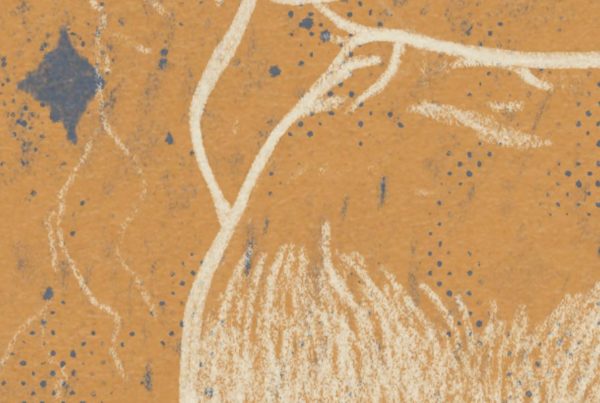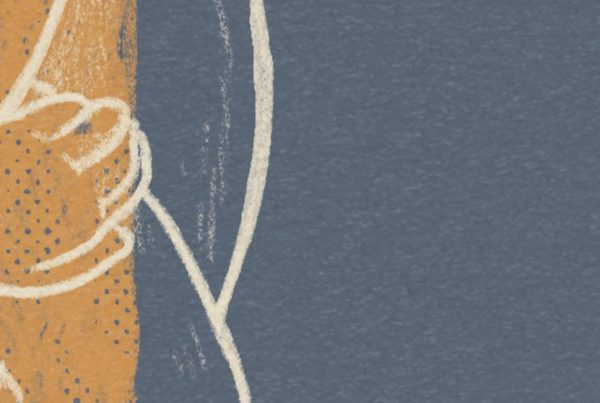In a recent email published by Richard Rohr and his team—the Centre for Action and Contemplation—an illuminating perspective was shared regarding the parable of the weeds (Matthew 13:24-30).
This parable tells the tale of an owner who, when asked by his servants if they should pull out the weeds that are found growing alongside the wheat, responds with, “No. Let them both grow together until the harvest.”
Many times, I’ve heard this parable preached from the perspective of saint and sinner. Meaning, those who live according to God’s way of life end up as wheat, and those who live contrary to God’s ways end up as weeds.
But here, Father Richard’s perspective illuminates an angle of ourselves – that within each of us is a mixture of both weed and wheat.
Everything belongs, as Rohr teaches, and it takes discernment to learn how to hold the paradox for how the good and bad belong together.
In sitting with the soul work of belonging this month, we’ve been prompted to consider a few different angles on this theme:
- Belonging to our authentic and imperfect selves.
- Our eternal belonging.
- And belonging to one another.
But the idea Rohr is illuminating brings another point of view to consider—how finding a sense of belonging within ourselves involves holding space for both/and that exists within our very own nature.
We can’t only highlight the good sides, the acceptable parts and the presentable pieces while suppressing and ignoring our “ugly” bits. And yet, how often do we do exactly that?
How often do we downplay or hide the parts we know make other people uncomfortable?
How often do we completely disconnect from and avoid the parts that bring us pain, darkness, and discomfort because we wish they weren’t a part of who we are?
But as Rohr so wisely puts it, “we cannot wait for things to be totally perfect to fall in love with them, or we will never love anything.”
“If we must have perfection to be happy with ourselves, we have only two choices. We can either ignore our own evil (deny the weeds) or we can give up in discouragement (deny the wheat). But if we put aside perfection and face the tension of having both, then we can hear the good news with open hearts.”
When we’re able to accept these parts, then finding places to belong feels a lot less threatening because we have found belonging within ourselves. We have given ourselves permission to love imperfect things.
“That’s the mystery of holding weed and wheat together in our one field of life. It takes a lot more patience, compassion, forgiveness, and love than aiming for some illusory perfection that usually cannot see its own faults. The only true perfection available to us is the honest acceptance of our imperfection.”
So, as you explore the prompts in today’s intermission, consider what parts of yourself need to be embraced, accepted, and loved so you can belong to yourself, and feel at home within.
– With Joy
Source: Everything Belongs: The Gift of Contemplative Prayer, by Richard Rohr.
Source: Richard Rohr’s Daily Meditation, from Center for Action and Contemplation.
Pause for Practice
Lectio Divina is a traditional monastic practice of scripture reading, meditation, and prayer intended to posture communion with God and to increase knowledge of God’s word. Through this practice, space is created to listen and pay attention to The Holy at work by entering into the reading of this Sacred Text.
Follow the below prompts when ready to begin.
Step 1: Lectio — Read the following parable slowly and attentively, paying attention to a word or phrase that captures your attention. Notice what nudges you and lingers.
“The Kingdom of Heaven is like a man who sowed good seed in his field, but while people slept, his enemy came and sowed darnel weeds also among the wheat, and went away. But when the blade sprang up and produced grain, then the darnel weeds appeared also. The servants of the householder came and said to him, ‘Sir, didn’t you sow good seed in your field? Where did these darnel weeds come from?’
He said to them, ‘An enemy has done this.’
The servants asked him, ‘Do you want us to go and gather them up?’
But he said, ‘No, lest perhaps while you gather up the darnel weeds, you root up the wheat with them. Let both grow together until the harvest, and in the harvest time I will tell the reapers, ‘First, gather up the darnel weeds, and bind them in bundles to burn them; but gather the wheat into my barn.’”
Step 2: Meditatio — When done reading the parable, and when something has captured your attention, gently repeat this word, phrase, or insight in your mind and allow the words to interact with your thoughts, hopes, memories, and desires. Sit with this for as long as you need and reflect on it.
Step 3: Oratio — Now spend time praying about what surfaced. Have a heartfelt and honest conversation with God about the very things you discovered to be mulling around in your mind. Allow the wisdom of the parable to touch your heart.
Step 4: Contemplatio — When you’ve given ample space to the above steps (taking as long or as little as you need), finish your time of practice simply resting in the presence of the One who, through his Word, is inviting you into a transforming embrace. Bask in the presence of the present, and just be.
Pause for Thought
“… come to a full realization of who you are and what you have been gifted to do, and embrace it eagerly. Do it. Be true to who you are. Be true to your call, true to how God has made you. Your call is not a superior call or a more sacred call; it is merely your call.”
Source: Courage and Calling: Embracing Your God-Given Potential by Gordon T. Smith.
Pause for Examination
Following the thoughts and prompts featured in today’s Pause, reflect on what stands out for you? What do you find yourself lingering on? Spend a few moments journaling the responses that arise.
Questions for Consideration
-
If you would like to share this issue of PAUSE – via text, social media, or email – just copy and paste this link: https://joyover.com/pause/july-19-2023
- Click here for previous month’s art offerings
P.S. When learning to embrace our whole selves, this three-year-old has much to teach us all.






